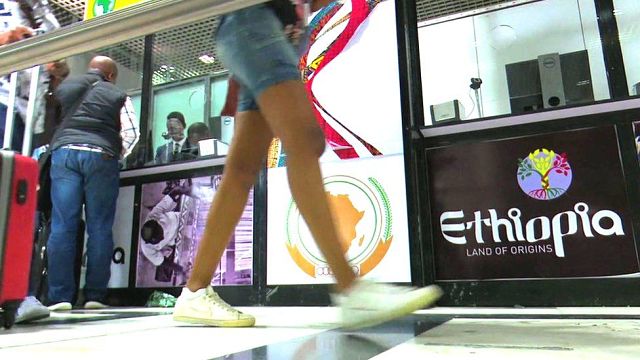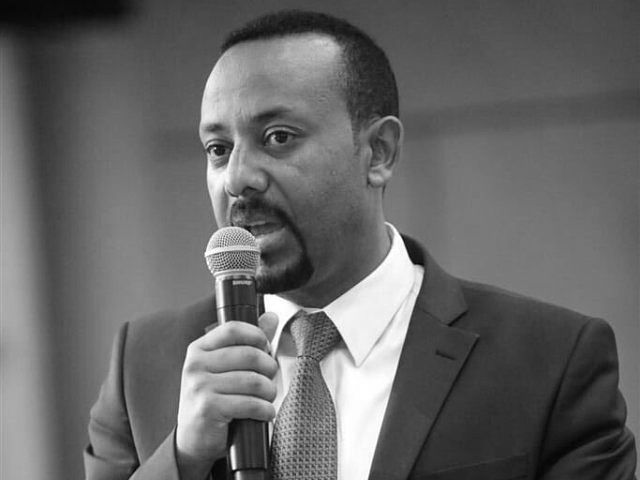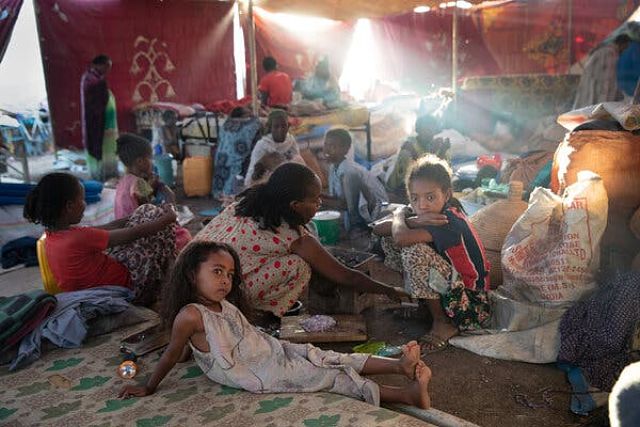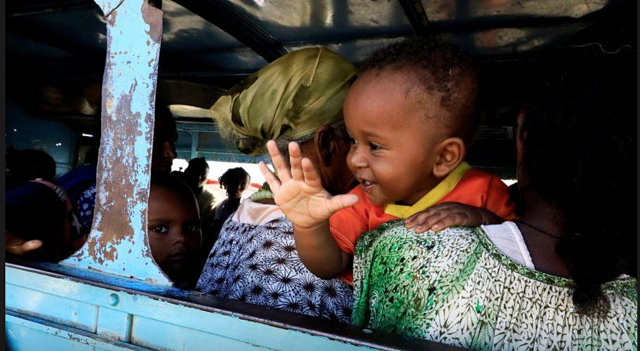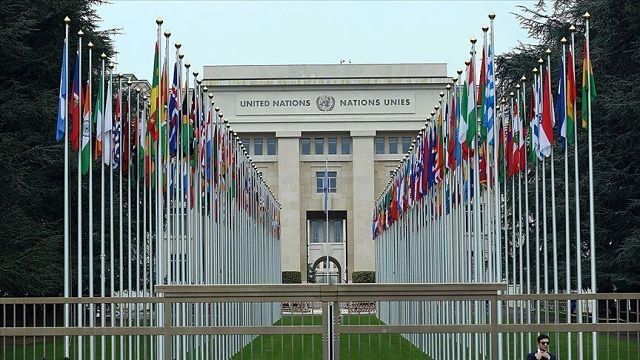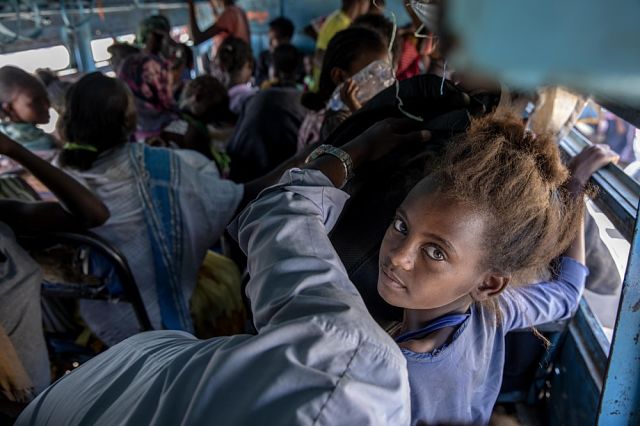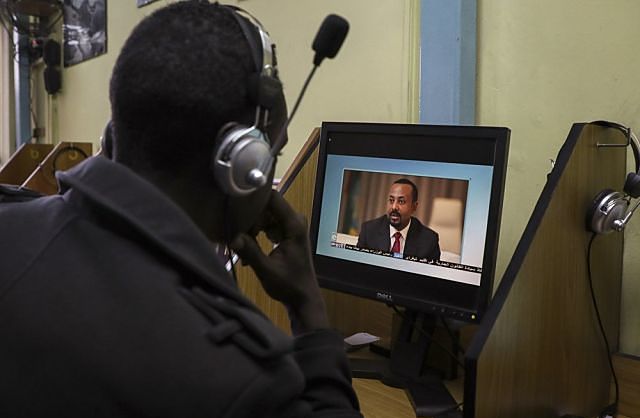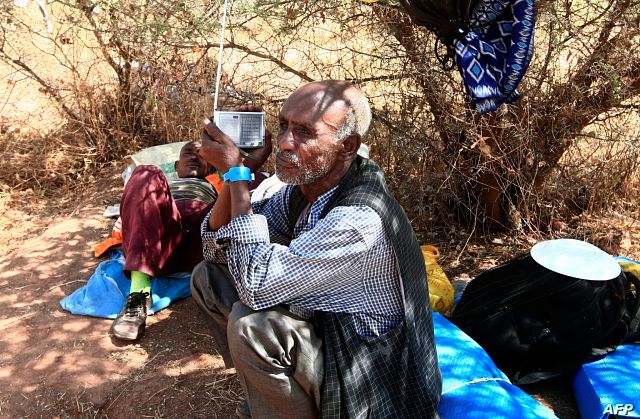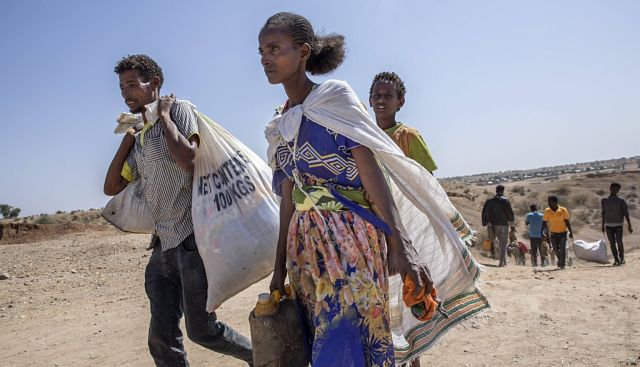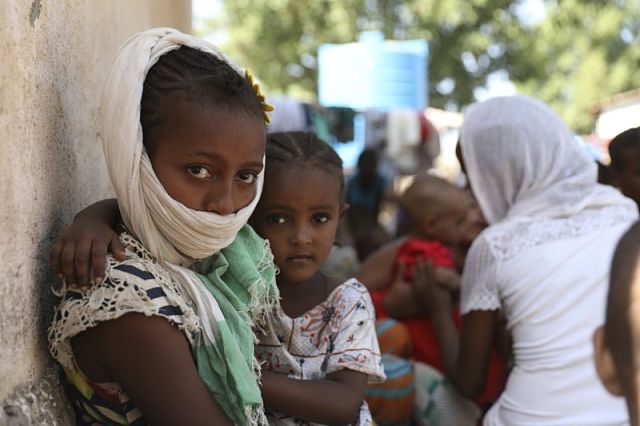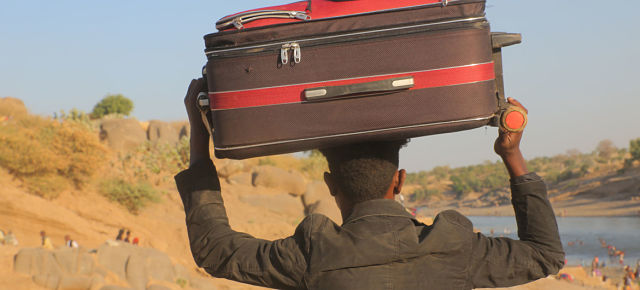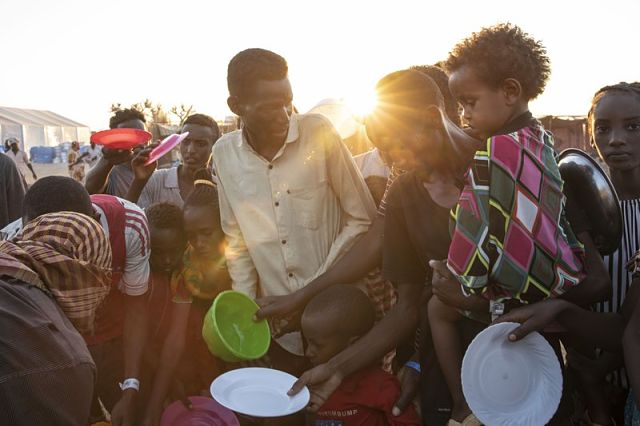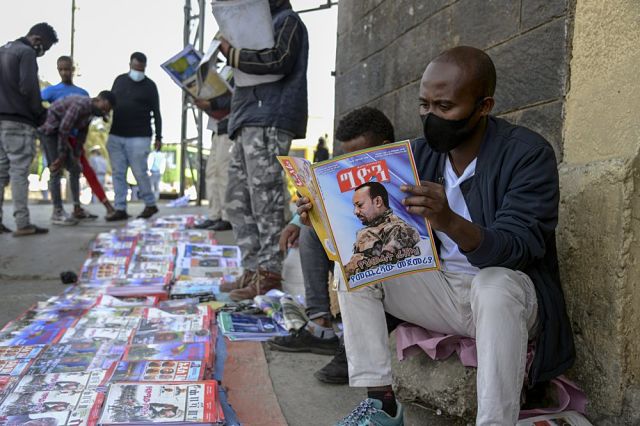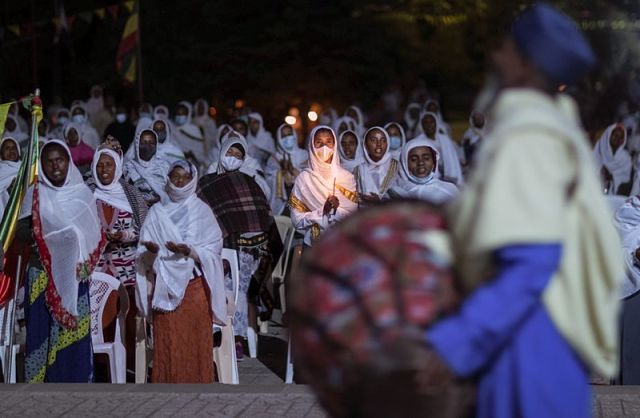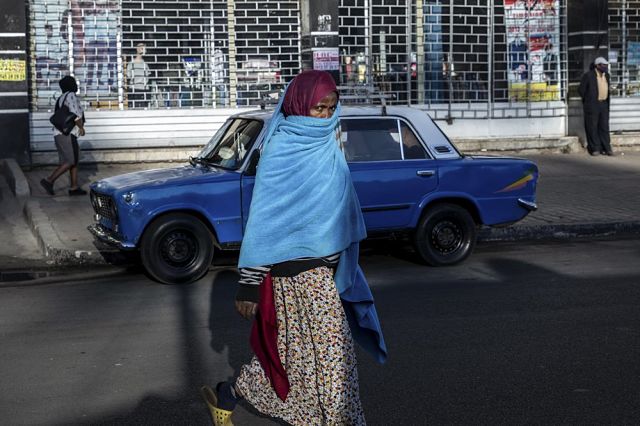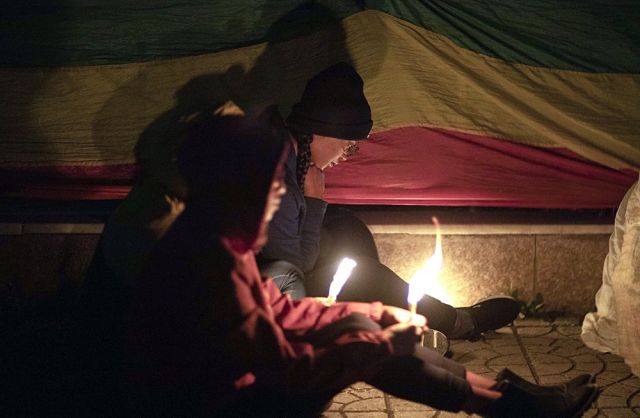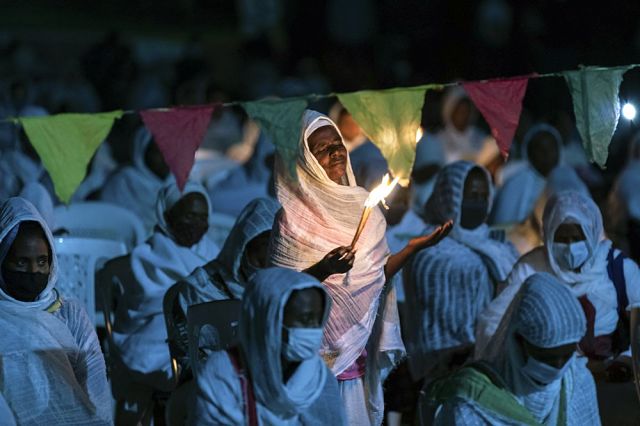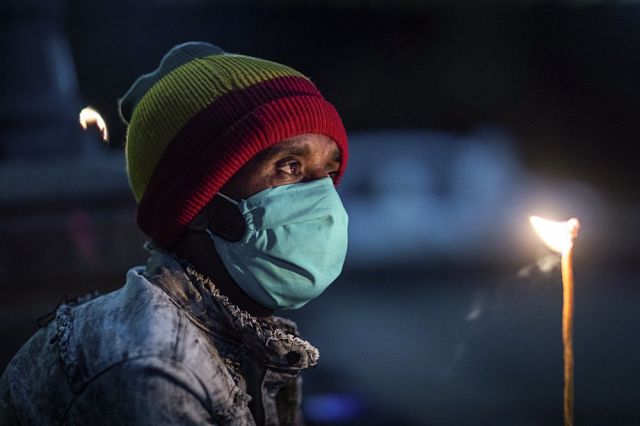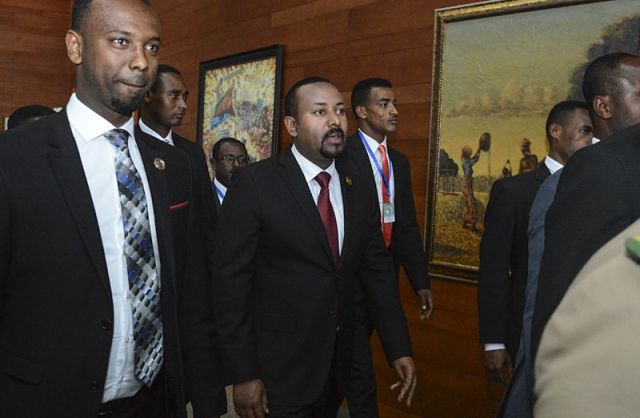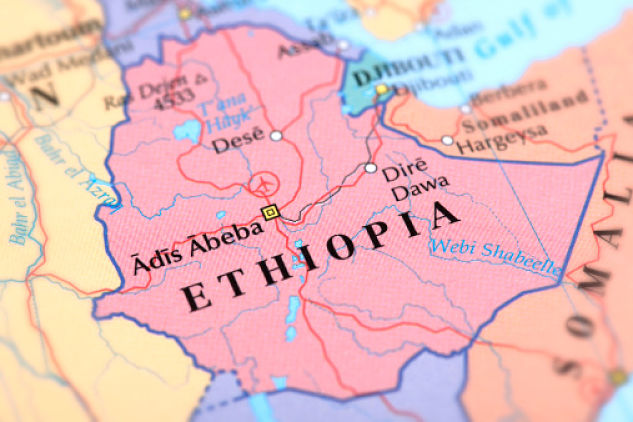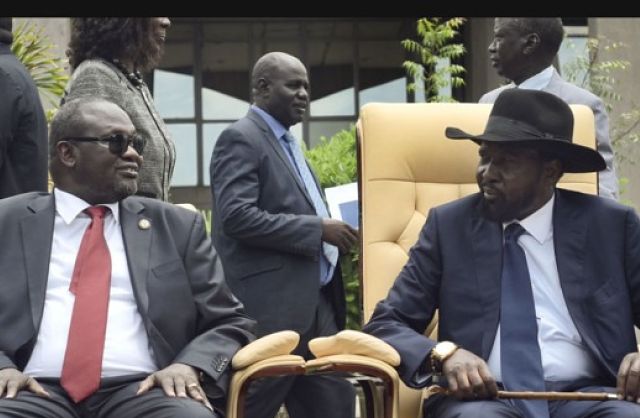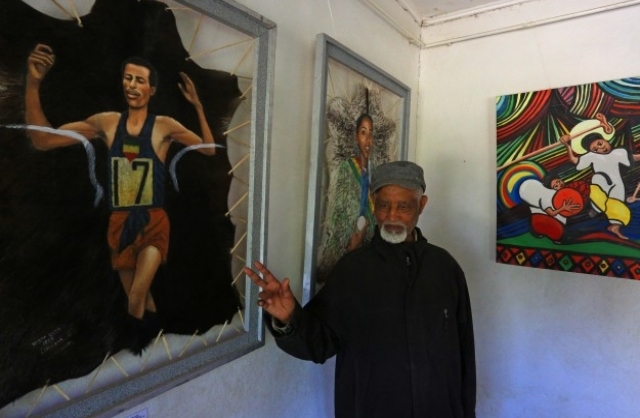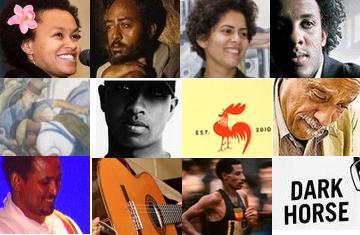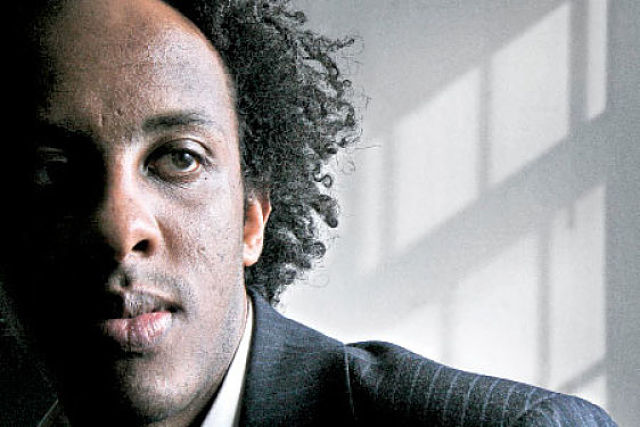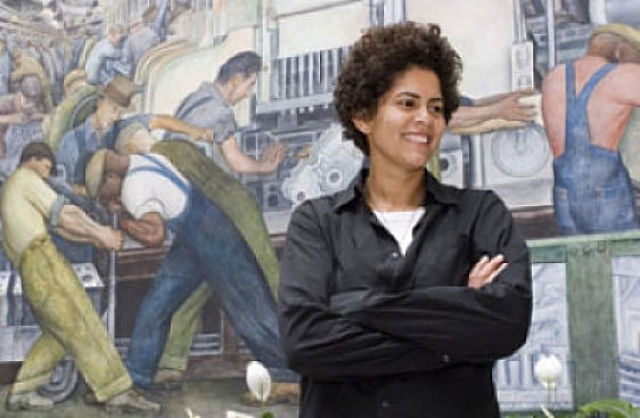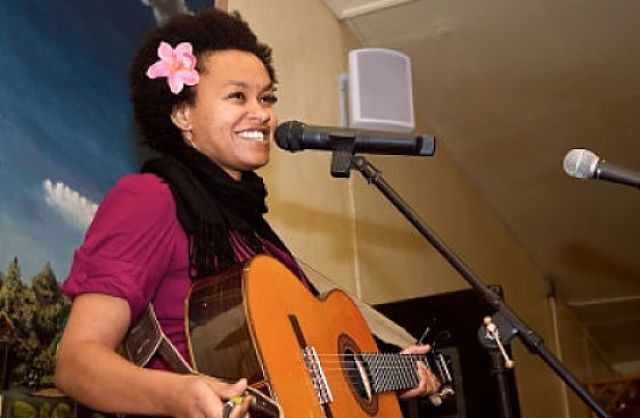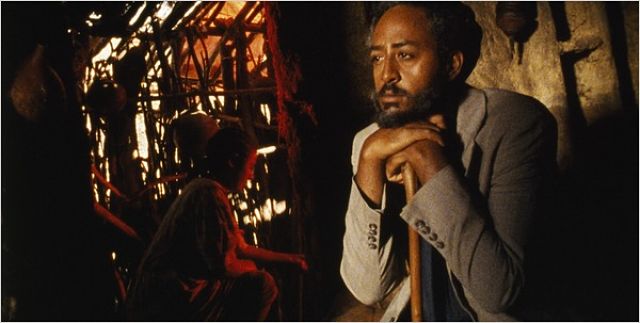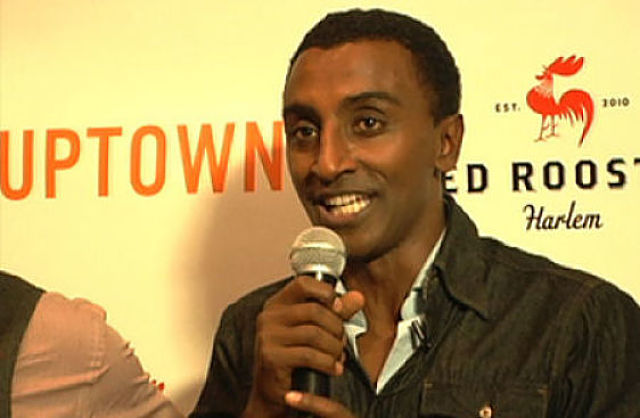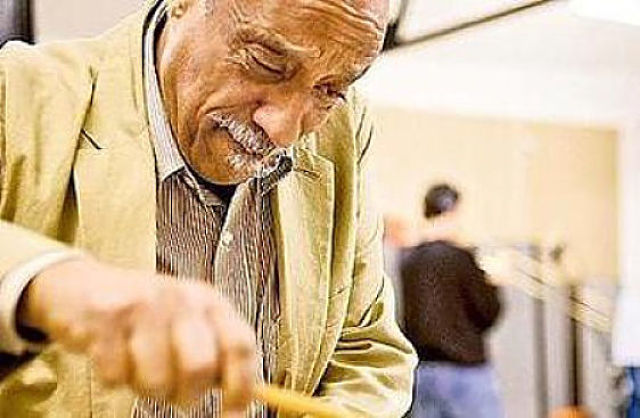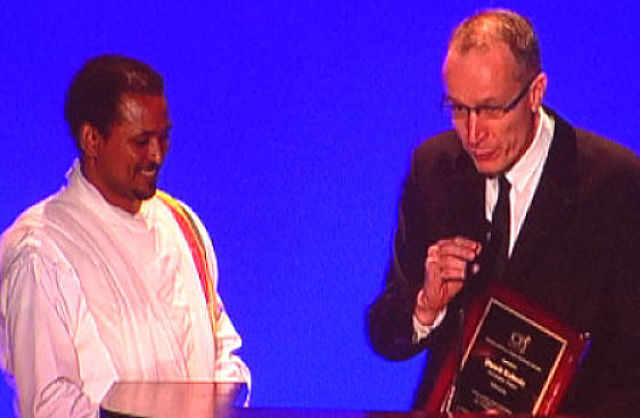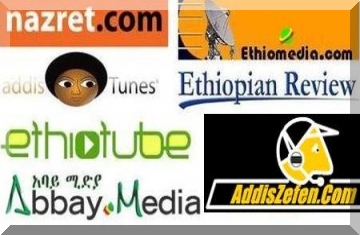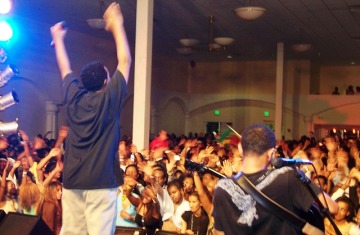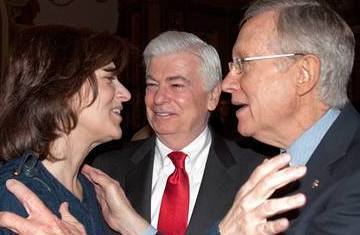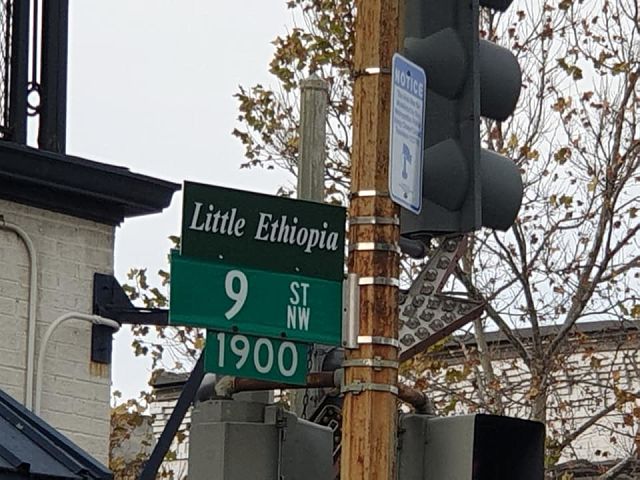 The ceremonial resolution, which was sponsored by Council member Brandon T. Todd and unanimously approved by the D.C. Council this month, recognizes "the Ethiopian community’s heritage and culture, outstanding leadership and contributions to the District of Columbia’s economy and the 9th and U Street business corridor located in the Shaw neighborhood, and its partnership with the African American community in the fight for social justice and civil rights." (Photo: Facebook)
The ceremonial resolution, which was sponsored by Council member Brandon T. Todd and unanimously approved by the D.C. Council this month, recognizes "the Ethiopian community’s heritage and culture, outstanding leadership and contributions to the District of Columbia’s economy and the 9th and U Street business corridor located in the Shaw neighborhood, and its partnership with the African American community in the fight for social justice and civil rights." (Photo: Facebook)
Tadias Magazine
By Tadias Staff
Updated: December 24th, 2020
New York (TADIAS) – The D.C. Council has approved a ‘Little Ethiopia’ ceremonial resolution to honor the business and cultural contributions of the Ethiopian community in the U.S. capital.
The resolution, which was sponsored by Council member Brandon T. Todd and unanimously approved by the D.C. Council this month, recognizes “the Ethiopian community’s heritage and culture, outstanding leadership and contributions to the District of Columbia’s economy and the 9th and U Street business corridor located in the Shaw neighborhood, and its partnership with the African American community in the fight for social justice and civil rights.”
The resolution notes that “more than 300,000 Ethiopian descendants reside in the Washington, D.C. Metropolitan area, one of the largest populations of Ethiopians in the United States. The region has a multitude of Ethiopian business owners, doctors, professors, entrepreneurs, community leaders, artists, and families.”
In addition the ceremonial resolution points out that “Ethiopian immigrants initially settled in Adams Morgan, then along 9th Street NW in the historical African American Shaw neighborhood, where the 9th Street corridor between 9th and 11th Streets NW is fondly known as “Little Ethiopia.”
The resolution adds:
During the 1990’s, Ethiopian business owners selected the Shaw community as a central location and hub to establish new businesses that led to a vibrant flourishing business enclave that was largely responsible for revitalizing the community following the riots in the mid 1960’s, and returned it to a thriving corridor established by African American business owners prior to the riots;
Ethiopian entrepreneurs have made significant contributions to the business community and have been outstanding leaders in Washington, D.C. and surrounding areas particularly retail strips where their strategy to establish a concentrated group of businesses has contributed to sustainability, and attracted members of both the Ethiopian community and local residents, ultimately enriching the cultural fabric of our international city and tax revenue.
The full resolution is posted below.
A CEREMONIAL RESOLUTION
____________
COUNCIL OF THE DISTRICT OF COLUMBIA
______________
District of Columbia’s Ethiopian Business and Cultural Community ‘Little Ethiopia’ Ceremonial Recognition Resolution of 2020
To recognize the Ethiopian community’s heritage and culture, outstanding leadership and contributions to the District of Columbia’s economy and the 9th and U Street business corridor located in the Shaw neighborhood, and its partnership with the African America community in the fight for social justice and civil rights.
WHEREAS, Ethiopia is an independent African country that has never been colonized and stands as a symbol for all African peoples in their struggle for freedom, dignity and respect;
WHEREAS, Ethiopia defended itself from Italian invasion on March 1, 1896 at the Battle of ADWA. The Ethiopia’s landmark victory unified the country and marked the first defeat of a European power by an African Country;
WHEREAS, Ethiopia is widely recognized as a pioneering nation in the decades long struggle against colonialism and an inspiration to people across the Diaspora, and other nations around the world;
WHEREAS, Ethiopia’s root can be traced to the origins of civilization and is home to the remains of the first human ancestors found in the bones of Ardi dating back to 4.2 million years ago, and Lucy dating back to 3.5 million years ago;
WHEREAS, Ethiopia is also home to the great Axumite Kingdom that rivals Rome, Persia, and China;
WHEREAS, Ethiopia is the birthplace of Queen of Sheba and the enduring Solomonic dynasty;
WHEREAS, there are nine United Nations World Cultural sites in Ethiopia including the eleven 13th century cave churches in Lalibela “New Jerusalem”, and the 16 41 th Century fortress42 city of Fasilades surround by a 900-meter long wall;
WHEREAS, on December 27, 1903 Ethiopia’s Emperor Menelik II and President Theodore Roosevelt established diplomatic relations with the signing of a Treaty of Amity and Commerce;
WHEREAS, the Ethiopian community has a long relationship with the African American community anchored by the historical spiritual struggle for liberation reflected in the Abyssinian Christian Churches;
WHEREAS, a significant milestone in the longstanding relationship with the Ethiopian and African American communities took place in 1808 when Ethiopian seamen and African American parishioners left the First Baptist Church of New York, and founded the Abyssinian Baptist Church in Harlem, New York in protest of segregated seating arrangements;
WHEREAS, the Abyssinian Baptist Church was inspired by the ancient name of Ethiopia, Abyssinia;
WHEREAS, the relationship was enhanced through an education exchange that encompassed the training of pilots, teachers, and medical personnel at Howard University; and a cultural exchange of musical and artistic performances that together deepened the ties that connect Ethiopia with the United States;
WHEREAS, the first African Studies Department in the United States was started at Howard University by Dr. William Leo Hansberry, who with the first Ethiopian medical school graduate Dr. Melaku Beyan, founded the famed Ethiopian Research Council. The department was founded for the unique purpose of disseminating information on the history, culture, civilization, and diplomatic relations of Ethiopia in ancient and modern times;
WHEREAS, the first African American Rhodes Scholar and Howard Professor Dr. Alain Locke encouraged his students to recognize and incorporate their African Heritage in their work;
WHEREAS, the great African American poet and District resident Paul Laurence Dunbar in “Ode to Ethiopia” promotes African Americans to look to Ethiopia for pride;
WHEREAS, District native and jazz musician extraordinaire Duke Ellington traveled and performed in Ethiopia and received Ethiopia’s Medal of Honor in 1973, Ethiopia’s highest prize from Emperor Haile Selassie I;
WHEREAS, it was Dr. Alain Locke and others at Howard that provided the intellectual inspiration for the Harlem Renaissance and U Street’s portrayal as Black Broadway;
WHEREAS, Ethiopia inspired Pan African movements that gave hope to those seeking justice in the eyes of God and the world;
WHEREAS, writers, artists, and activists such as W.E.B. Dubois, Frederick Douglas, Martin Delaney, Langston Hughes, Joseph Harris, Marcus Garvey and Edward Blyden built on these traditions culminating in the US Civil Rights Movement and African Independence Movements;
WHEREAS, Ethiopians first began migrating to the United States in the 1970’s because of political persecution by the military junta that overthrew Emperor Haile Selassie I;
WHEREAS, more than 300,000 Ethiopian descendants reside in the Washington, D.C. Metropolitan area, one of the largest populations of Ethiopians in the United States. The region has a multitude of Ethiopian business owners, doctors, professors, entrepreneurs, community leaders, artists, and families;
WHEREAS, Ethiopian immigrants initially settled in Adams Morgan, then along 9th Street NW in the historical African American Shaw neighborhood, where the 9th Street corridor between 9th and 11 102 th Streets NW is fondly known as “Little Ethiopia”;
WHEREAS, during the 1990’s, Ethiopian business owners selected the Shaw community as a central location and hub to establish new businesses that led to a vibrant flourishing business enclave that was largely responsible for revitalizing the community following the riots in the mid 1960’s, and returned it to a thriving corridor established by African American business owners prior to the riots;
WHEREAS, Ethiopian entrepreneurs have made significant contributions to the business community and have been outstanding leaders in Washington, D.C. and surrounding areas particularly retail strips where their strategy to establish a concentrated group of businesses has contributed to sustainability, and attracted members of both the Ethiopian community and local residents, ultimately enriching the cultural fabric of our international city and tax revenue;
WHEREAS, in 2019 the District of Columbia under Mayor Muriel Bowser’s leadership, renewed its Sister City Agreement between Addis Ababa and Washington, D.C. to create lasting partnerships and cooperation on economic development, public health, culture, tourism and education;
WHEREAS, the Sister City agreement confirms that the two cities will promote collaboration, information exchange, and joint ventures, with a special focus on the growth and development of business investment, trade and tourism and public-private partnerships;
WHEREAS, the Sister City agreement shares best practices in the areas of government operations including public works, transportation, technology, infrastructure and housing; health polices to strengthen the capacity and effectiveness of prevention and treatment programs; sustainable environment, including energy conservation and the green economy; and promote the development of programs in the areas of culture, arts and education;
WHEREAS, the 2019 Sister City Agreement was the culmination of first-hand efforts by a delegation to Addis Ababa of Washington, D.C. leaders, under the auspices, direction, and stewardship of Henok Tesfaye, a prominent and long-standing Washington, D.C. entrepreneur, civic leader, and humanitarian;
WHEREAS, during the mission, the Mayor of Addis Ababa, Takele Uma Banti, unveiled a newly-named street, “Mayor Muriel Bowser Street,” and announced the renaming of Gazebo Roundabout to “Washington, D.C. Square”, an historic honor, as part of the signing ceremony for the renewal of the Sister City agreement between the District and Addis Ababa;
WHEREAS, Mayor Muriel Bowser proclaimed July 28, 2018 as “Ethiopia Day in DC” in honor of the visit of Ethiopian Prime Minister Dr. Abiy Ahmed Ali to Washington, D.C.;
WHEREAS, the Ethiopian communities’ contributions to arts, culture, and education in the District encompass four annual events to commemorate the fight for freedom by the resilient and the patriotic people of Ethiopia against Italian invasion and the annual holiday celebration;
WHEREAS, the four annual events include the victory of Adwa on March 1, 1896, the Addis Ababa Massacre and Yekatit 12 on February 19, 1937; the liberation of Addis Ababa and Miazia 27 on May 5,1941; and Kwanzaa and Early celebration of Genna on December 26, 2004;
WHEREAS, the Ethiopian community also commemorates Adwa and Miazia by placing a wreath with the colors of the Ethiopian flag in front of the African American Civil War Memorial in March and May of each year;
WHEREAS, June 4, 2015 Mayor Muriel Bowser declared “Ethiopian International Food Day “where 47,000 students in over 100 schools were served Ethiopian food for breakfast, lunch and dinner. The event was held at Walker Jones Education Campus;
WHEREAS, the program was planned by DC Mayor Bowser’s Office of the Secretary, Executive Office of the Mayor in collaboration with District of Columbia Public Schools, the Little Ethiopia DC organization, and an advisory group of ten Ethiopian chefs and restaurateurs guided food preparations for the event including the prominent Ethiopian Chef “Etete” Tiwaltengus Sheenegelgn; and
WHEREAS, the Ethiopian community continues to make exceptional contributions to the District of Columbia.
RESOLVED, BY THE COUNCIL OF THE DISTRICT OF COLUMBIA, that this resolution may be cited as the “District of Columbia’s Ethiopian Business and Cultural Community ‘Little Ethiopia’ Ceremonial Recognition Resolution of 2020”.
Sec. 2. The Council of the District of Columbia recognizes the long history between the United States and Ethiopia, and congratulates the Ethiopian community for over seventy years of collaborative work in the areas of economic development, entrepreneurship, arts, culture, education, and government collaboration in the District of Columbia.
Sec. 3. This resolution shall take effect immediately upon the first date of publication in the District of Columbia Register.
—
Join the conversation on Twitter and Facebook.





